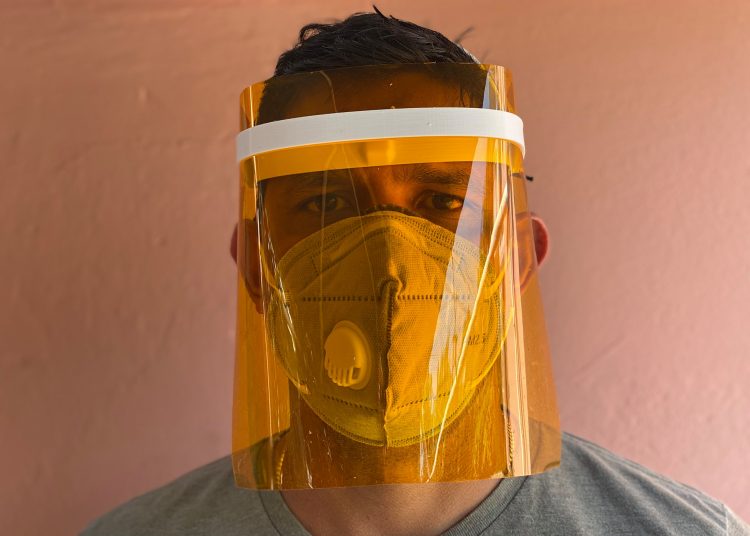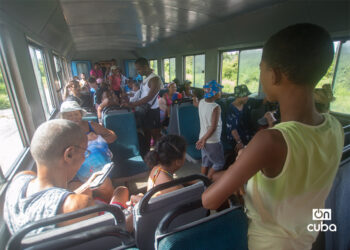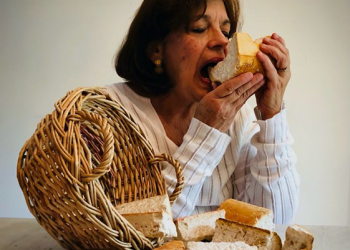At least two factors suggest the relevance of the Social and Solidarity Economy (SSE) for Cuba today. On the one hand, the diversification of its productive matrix and the social changes that have taken place require a more decentralized productive and distributive approach, in which different actors intervene in a more responsible and articulated manner. Local development strategies arise above all from the grassroots, led by territorial governments, and public-private partnerships empower resources and people. All these elements characterize the SSE.
On the other hand, the response to COVID-19 has demonstrated the power of a strong and determined central government, capable of mobilizing the necessary resources to save the country. At the same time, the strength of private and community initiatives, in alliance with the public sector, and the reinvention of the private farmer and business community to overcome difficulties have been demonstrated. The public-private partnership is at the base of the SSE.
The collapse of tourism, the difficulties of accessing world trade and foreign investment, as well as an increasingly stronger and all-encompassing U.S. blockade, make it necessary to plan economic growth based more on the local market, on our endogenous resources―including human resources―and in social commitment. Similarly, the decentralization of economic activity is a component of the SSE.
According to the United Nations, many SSE companies and organizations have responded in various ways to the COVID-19 pandemic. These include converting their production according to the needs of the emergency, protecting the health of vulnerable groups, providing food and protective equipment, financial support, culture and art, relocating supply chains, and so on.
The Cuban media have highlighted the donation of agricultural products by farmers and cooperative members to social institutions and health centers, including hospitals, homes for the elderly and facilities that house people vulnerable to COVID-19. The experiences of a group of private and cooperative businesses that, in the midst of the pandemic, have adapted to continue operating with social commitment and in public-private partnerships stand out.1 Some examples are the following:
- 3D-Fab Crearte, a 3D modeling and printing services workshop, advises the Cuban Neuroscience Center on 3D printing manufacturing. As coordinators of the Digital Manufacturing Working Group, they have produced various models of face shields and valves for the assisted breathing system.
- The ATRES Cooperative, in Matanzas, made facemasks that were delivered to the Homes for the Elderly, the Pediatric Hospital and a branch of BANDEC, as well as facial protectors made from recovered and reused plastic that are distributed to health personnel.
- The Akokan self-managed local development project carries out a campaign in the Los Pocitos neighborhood, Marianao, for prevention and isolation, makes facemasks and information pamphlets, encourages solidarity gardens with organic planting and develops other initiatives to ensure essential food for the most vulnerable people.
- In appreciation of the work of Cuban doctors fighting in Italy against the coronavirus, the Italian owners of the Bella Chao Restaurant donated and distributed food to the elderly in the Buena Vista neighborhood in Playa, Havana. Crystal does something similar in the Cotorro municipality. In alliance with the government of the municipality of 10 de Octubre, the Habana 59 Restaurant supports people with disabilities and the elderly with free delivery of meals.
- The JuankyPan Cafeteria, in coordination with the Electric Motorcycle Club, donates food and transports it, free of charge, to the elderly and others in need.
- Leonel Pachy, from Pizzas Pachy, donated 30,000 pesos to the El Carmelo People’s Council. With this money, El Saturno, a restaurant in the family care system, prepared the food for 300 vulnerable people.
- Four young people from the DiArt Studio, in Pinar del Río, manufacture protective plastic masks for health workers. DiHabana designers did something similar in the capital for the Hermanos Ameijeiras, Militar and Clínico de 26 hospitals. Elfos Gráfica manufactured PVC masks for intensive care and the laboratory of the Pedro Kourí Institute of Tropical Medicine (IPK).
- Hidrodecoración de la Fuente makes protection means for health personnel from recycled plastic bottles. It has delivered them to the Marianao Pediatric Hospital, the Final Hospital and the Special Troops.
- Clarita Camalleri, one of the five Cuban perfumers, has stopped the production of artisan perfumes to produce disinfectant gel, also artisan, in her family business.
- D’Brujas, a manufacturer of artisan soaps, produced soaps that were distributed by the governments of the municipalities of 10 de Octubre and Playa to the orphanage and a home for the elderly. Transportation was carried out by the Mandao courier service.
- A 19-member private auto mechanics shop in Santa Clara repaired five out-of-service ambulances free of charge.
- The Pura Vida gym closed its doors and developed online classes for everyone who wants to exercise from home.
- Mater Cuba promotes the practice of physical activity to improve the quality of life of mothers and their babies during pregnancy and postpartum. It created a free virtual space to support and accompany pregnant women in times of quarantine.
- Guajiro Soft, a software developer group, designed, in collaboration with MINSAP and Cinesoft, the COVID-19 informative and screening application.
- COVID19CubaData is the name of an interactive statistical board that collects updated information on the progress of the coronavirus in Cuba. It is a tool from the Postdata.club project, made in conjunction with the magazine Juventud Técnica and the Faculty of Mathematics and Communication of the University of Havana.
This does not mean that all private and cooperative sector ventures have embraced Corporate Social Responsibility (CSR) in times of pandemic. But the variety of initiatives in these examples is an example of the creativity of the Cuban private sector, even with all its limitations, and debunks the image that it only includes low technology and professional businesses whose sole objective is to generate wealth for their owners. The sector generates employment in traditional spheres, but also in emerging ones.
How much more could be done through alliances between private workers and state institutions in a post-COVID stage in Cuba? A propitious terrain could be streamlining or enhancing the shopping experience on state e-commerce platforms. In Wuhan, China, the epicenter of COVID-19, in the midst of the quarantine, the support of messengers and delivery services to homes and/or institutions was essential.
Alianzas posibles entre privados y estatales contra la Covid-19 en Cuba
Sustainable local food systems have seen significant growth in many countries, including “from the farm to the table” practices in restaurants and homes with home delivery. In Cuba we know of interesting experiences in Pinar del Río and Havana. An SSE approach, to which producers in family and community gardens would join, could greatly contribute to local food security.
Another possibility is the reconversion of the current agricultural market cooperatives―retail marketing of agricultural products―which, after more than five years, have not solved the problems of access to products with higher quality and lower prices in consumer-marketing cooperatives. This proposal would reduce the food expenses of the Cuban family.2
Achieving the full potential of SSE companies for recovery will depend on the willingness of governments to co-design and co-implement public policies and recovery plans with a multi-sectoral approach.
SSE in the “new normal”
As long as human interaction and social relationships are threats to health, economic activity cannot return to the old normal. People will be reluctant to congregate in restaurants and bars, attend concerts, and consume in public places. Because of all this, tensions corresponding to the new contradictions are generated, which demand differentiated and innovative tools and policies. A new normal that preserves human health, without sacrificing economic and social development.
We need to promote social and environmental responsibility if we want the ideology of capitalism not to be reproduced in the private and cooperative sector. Also strengthen and democratize the socialist enterprise, promote genuine cooperatives, civil society associations and budgeted institutions (such as universities), promote the scientific and technical development of all forms of ownership, and foster alliances to carry out inclusive local development projects.
The SSE serves as an engine of local development, articulating the different forms of ownership, communities and knowledge managers, such as municipal universities and university centers, under the strategic leadership of the local government. Many of the SSE entities are rooted in their communities, where they play an essential role in sustainable development and local governance.
The social economy allows making better use of resources, increasing exports, reducing imports, restoring the environment, increasing local resilience and territorial identity. The SSE entities were pioneers in promoting the circular economy, moving from productions with large amounts of emissions and waste to systems that take advantage of their residuals and resources in a more efficient and sustainable way. They save natural capital and protect the ecosystem.
SSE is also key to developing innovative solutions to global problems that challenge many communities around the world. By promoting shared knowledge, innovative solutions and good practices, it lends itself to joint exchanges and learning. In these exchanges in Latin America, North America, Europe and Asia we have identified positive experiences, good practices, advances and resources of the different currents of the SSE. We can get feedback from them.3 The possibility of scaling the impacts of SSE has been proven through South-South and triangular cooperation, a strategic instrument to support innovative SSE practices adaptable to local possibilities and contexts in different parts of the world.4
The successes of self-management are mediated by the “lottery” of territorial benefits and damages, the endowment of resources, the ability to establish horizontal relationships between territories and sectors, as well as the means to solve municipal demands and needs. The SSE can help: the central State and the territories can redistribute and channel resources in a differentiated way towards “opaque” territories, favoring vulnerable communities and groups through fiscal policies and beneficial prices.
Local development strategies can detect ignored or idle opportunities and resources to use in an inclusive way and mobilize external resources from previously untapped sources. Local development projects must incorporate the social and environmental dimension, establish indicators and apply the triple business balance: economic, social and environmental.
Changes in economic policy can contribute greatly to SSE, but it is not necessary to wait for them to promote these changes at local and community levels. It is necessary to pass from the prejudices between private and state to the informed judgment; from spontaneous solidarity to systemic social responsibility; from import-based production to the mobilization of endogenous resources and the search for opportunities to export; from the lack of investment capital to the mobilization of popular, community finances and productive remittances. We must break the barriers associated with forms of ownership, move to the state-cooperative-private articulation towards comprehensive territorial development.
SSE entities create opportunities through collective action, extend protection through mutual aid, and empower individuals and communities through the collective and participatory management of their members. The SSE is key in the effort to ensure that “no one is left behind” in our country.
I have tried, both in this text and in the previous one, to demonstrate how the measures of relaunching the economy in the disadvantageous conditions imposed on us have the undesired impact of exacerbating the already existing economic and social inequalities. By consciously and articulately assuming the Social and Solidarity Economy (SSE) and Corporate Social Responsibility (CSR), the country would have more tools to face imbalances and promote inclusive local economic development, within the framework of the construction of socialism.
Notes
- OASIS Program of the Cuba Emprende Project in alliance with Auge Consultancy, May 2020. Emprendedores responsables, un jaque a la COVID-19. Iniciativas de apoyo social. Editions I and II.
- Yordany Landa de Saá, et. al. (2017). “Cooperativas de consumidores: una propuesta para reducir los gastos de la familia cubana por concepto de alimentación,” in Construyendo socialismo desde abajo: la contribución de la economía popular y solidaria, compiled by Rafael Betancourt, Caminos publishing house, Havana, 2017.
- Betancourt, Rafael. (2018). “Avances de la economía social y solidaria en áreas urbanas: lecciones para Cuba.” 5th Workshop on Social Studies on Work in “Inclusión social y trabajo en la Cuba actual.” CIPS National Symposium 2018, October 16-19, 2018.
- Betancourt, Rafael. (2016). “El impulso desde la Cooperación Sur-Sur y Triangular a la Economía Social y Solidaria en Cuba,” at the International Training Center of the ILO (CIF-ILO), Academy on Social and Solidarity Economy. 7th edition, compilation of articles, pp. 24-31, Turin, Italy, 2016.










